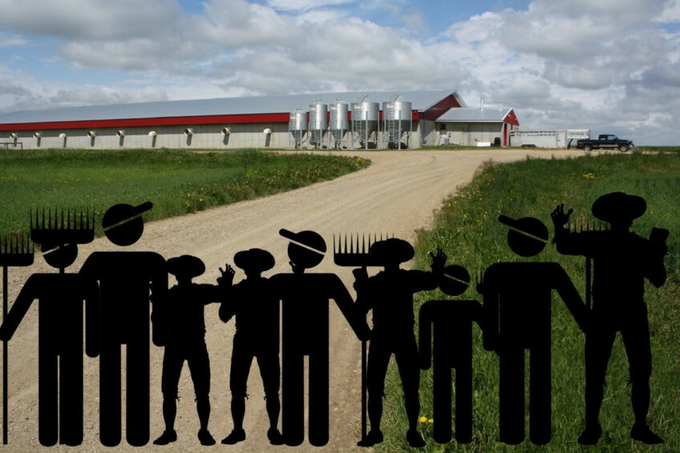June 8, 2025 | 16:40 GMT +7
June 8, 2025 | 16:40 GMT +7
Hotline: 0913.378.918
June 8, 2025 | 16:40 GMT +7
Hotline: 0913.378.918

The Canadian government recently reduced the maximum number of temporary foreign workers in the meat processing and livestock farming sectors from 30% to 20%. Photo: Vincent ter Beek
The Canadian Pork Council (CPC), Canadian Meat Council and 2 Canadian cattle groups are calling on Canada’s federal government to restore the Temporary Foreign Worker Program’s Workforce Solution Roadmap, which was introduced 2 years ago to address the industry’s critical labour shortage.
The Canadian government recently changed the roadmap without industry consultation, reducing the maximum number of temporary foreign workers in the meat processing and livestock farming sectors, among others, from 30% to a cap of 20%.
Temporary foreign workers are not the problem
“While we understand the federal government is seized with a housing shortage, temporary foreign workers are not the problem,” the CPC said. Those workers are generally provided housing through existing housing on farms or by processing plants by their employers.
Meanwhile, with the housing shortage and thousands now living in tents in many Canadian cities, the pork industry and Canadians in general are wondering why there are plans to let 500,000 immigrants will be let into Canada in 2025, the highest number yet.
Regarding the new 20% temporary foreign workers cap in some labour sectors, the federal government cited the reason of helping people already in Canada with jobs. However, for many, employers in farming, meat processing and many other sectors have been unable to hire people already in Canada. The jobs are generally considered too hard and too low-paying.
The second change – more costs and inconvenience
To be able to hire temporary foreign workers, a Canadian employer must complete a labour market impact assessment which shows there are not enough potential employees and that the employee has also taken steps to hire people, but to no avail.
Because the assessment is a lot of work and labour market conditions don’t generally change much from year to year, it’s easier and less costly if the labour market impact assessment is valid for longer. In 2022, the maximum validity of those assessments were extended to 18 months from nine. But recently, the validity was reduced again.
No input sought
The CPC notes that both of these changes were made without industry consultation, and are already having an impact on productivity, competitiveness and the amount of food production possible in Canada.
“Every job unfilled in our barns, in our processing facilities, and in our supply chain has an outsized impact on rural areas because Canada does not have additional people living in these areas who can fill these jobs,” said CPC Chair René Roy.
“If there’s a shortage of workers in the processing sector, it runs the risk that producers can’t ship their product to market, causing uncertainty for producers and consumers alike. We need to help recruit more new Canadians to rural areas, and creating uncertainty defeats our efforts to convince people to come join our industry.”
(PP)

(VAN) With the war ongoing, many Ukrainian farmers and rural farming families face limited access to their land due to mines and lack the financial resources to purchase needed agricultural inputs.

(VAN) Vikas Rambal has quietly built a $5 billion business empire in manufacturing, property and solar, and catapulted onto the Rich List.

(VAN) Available cropland now at less than five percent, according to latest geospatial assessment from FAO and UNOSAT.

(VAN) Alt Carbon has raised $12 million in a seed round as it plans to scale its carbon dioxide removal work in the South Asian nation.

(VAN) Attempts to bring down the price of the Japanese staple have had little effect amid a cost-of-living crisis.

(VAN) Fourth most important food crop in peril as Latin America and Caribbean suffer from slow-onset climate disaster.

(VAN) Shifting market dynamics and the noise around new legislation has propelled Trouw Nutrition’s research around early life nutrition in poultry. Today, it continues to be a key area of research.